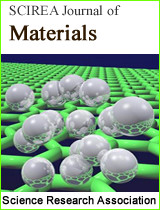Test for Reconditioning RA Waste with Simulated Bitumen and Concrete in a 1,2MW Plasma Test Facility-20092
DOI: 10.54647/materials43118 103 Downloads 16184 Views
Author(s)
Abstract
The operation and maintenance of nuclear power plants, the non nuclear fuel cycle, etc generate low-level radioactive waste which, along with the historical radioactive waste from past nuclear activities, needs to be treated and stored, awaiting final disposal. Plasma technology offers a very effective way of treating this waste with a high volume reduction factor (VRF), free from organics, liquids and moisture, and meets without a doubt the acceptance criteria for safe storage and disposal. By means of a plasma beam of approximately 5000°C, the inorganic materials are melted into a glassy slag, containing most of the radioactive isotopes while the organic material is gasified, oxidized and purified in an off-gas cleaning system.
First the paper describes the new full-scale Plasma Melting Facility (PMF) at the Kozloduy Nuclear Power Plant in Bulgaria which was taken in nuclear operation In May 2018. The plant has a capacity of 250 tons per year and the maximum contact dose rates of the incoming waste is 2mSv/h. Different mixtures of radioactive waste packed in 200l drums were successfully treated resulting in a glassy slag free from liquids and organic material with an important volume reduction factor (VRF). The Project was co-financed through a grant by Kozloduy International Decommissiong fund (KIDSF) administated by the EBRD through Bulgarian national funding.
Plasma is a suitable technology for treatment of problematic waste or even reconditioning waste so Belgoprocess was contracted to do plasma tests with simulated conditioned waste types. One can do tests on a laboratory scale on smaller samples and torch capacities of e.g. 50kW but Belgoprocess wanted to do more realistic and reliable tests. So Belgoprocess contracted Phoenix Solutions Co who has a full-scope test facility equipped with a 1200kW plasma torch for full-scope treatment of simulated conditioned waste.
For a first confidential contract simulated 200l (55 gallon) bitumen drums were treated. The drums contained different pucks of compacted waste such as rags, used filters, granulates, etc. The pucks were stacked in the 200l drums and subsequently embedded with bitumen. A total of 6 drums were treated in the plasma facility. For a second contract simulated homogeneous 200l (55 gallon) concrete drums with on the one hand concentrates and on the other hand spent resins were selected. A total of 6 drums with concrete and spent resins were treated and melted in the plasma testing facility. The paper describe the test facility, volume reduction factor (VRF) of different waste streams and most important parameters.
Keywords
Radioactive waste, thermal treatment, plasma, conditioned concrete and bitumen waste, vitrification
Cite this paper
Jan Deckers, Jurgen Hansen,
Test for Reconditioning RA Waste with Simulated Bitumen and Concrete in a 1,2MW Plasma Test Facility-20092
, SCIREA Journal of Materials.
Volume 6, Issue 1, February 2021 | PP. 1-11.
10.54647/materials43118
References
| [ 1 ] | DECKERS J. “Taking in nuclear operation of the Plasma Facility for industrial treatment of radioactive waste” Proceedings of the WM symposia 2019 Phoenix USA. |
| [ 2 ] | HANUS G. and DECKERS J. “Confidential reports about bitumen and concrete plasma tests“ 2015 -2018. |

